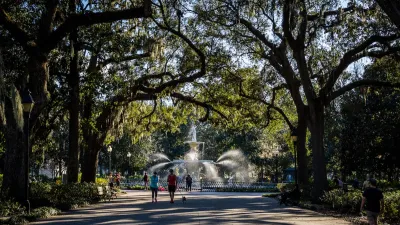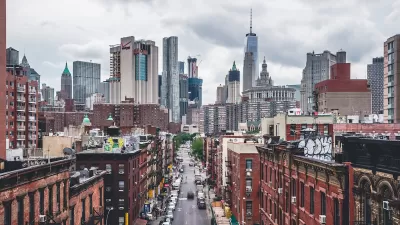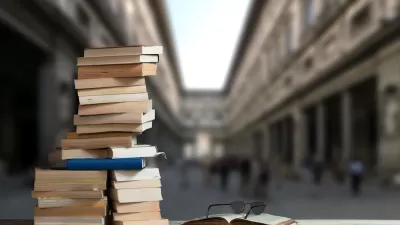As the presidential election season gears up, Mortimer B. Zuckerman's op-ed offers a cynical and weary electorate hope by invoking a transformative political vision of the role of the city.
For those unfamiliar with Bruce Katz and Jennifer Bradley’s 2013 book, The Metropolitan Revolution, the Editor-in-Chief of U.S. News & World Report offers a renewed rally cry.
"Leading metropolitan areas are more or less on their own since the federal government is in deep freeze," Mortimer B. Zuckerman states. He zeros in on partisan gridlock in Washington to explain why cities are assuming leadership in areas that were once the purview of the federal government, building the infrastructure and welcoming the communities that create the innovation clusters that drive 21st century economic development.
"Similar to the Tea Party and the Occupy movements, the metropolitan revolution is a child of the Great Recession," Katz and Bradley write. "Yet it is reasoned rather than emotional, leader driven rather than leaderless, born of pragmatism and optimism rather than despair and anger."
Unlike far-removed Washington politicians focused on two-year election cycles, city leaders plan for the long haul and "live daily with the consequences of their decisions," writes Zuckerman.
"The metropolitan revolution has only one logical conclusion: the inversion of the hierarchy of power in the United States," predict Katz and Bradley. They go so far as to write, "There is, in essence, no American (or Chinese or German or Brazilian) economy; rather, a national economy is a network of metropolitan economies."
While this outcome may seem alarmingly pre-Westphalian, the Brookings Institution authors point out that such a turn honors the ingenious nature of our political system.
"But what is happening in the United States today is also rooted in timeless and quintessential American values and is uniquely aligned with the disruptive nature of this young century and the manner and places in which people live their lives. The emerging revolution is not just a cyclical reaction but also a structural shift."
FULL STORY: The New American Heartland

Alabama: Trump Terminates Settlements for Black Communities Harmed By Raw Sewage
Trump deemed the landmark civil rights agreement “illegal DEI and environmental justice policy.”

Planetizen Federal Action Tracker
A weekly monitor of how Trump’s orders and actions are impacting planners and planning in America.

Why Should We Subsidize Public Transportation?
Many public transit agencies face financial stress due to rising costs, declining fare revenue, and declining subsidies. Transit advocates must provide a strong business case for increasing public transit funding.

Understanding Road Diets
An explainer from Momentum highlights the advantages of reducing vehicle lanes in favor of more bike, transit, and pedestrian infrastructure.

New California Law Regulates Warehouse Pollution
A new law tightens building and emissions regulations for large distribution warehouses to mitigate air pollution and traffic in surrounding communities.

Phoenix Announces Opening Date for Light Rail Extension
The South Central extension will connect South Phoenix to downtown and other major hubs starting on June 7.
Urban Design for Planners 1: Software Tools
This six-course series explores essential urban design concepts using open source software and equips planners with the tools they need to participate fully in the urban design process.
Planning for Universal Design
Learn the tools for implementing Universal Design in planning regulations.
Caltrans
Smith Gee Studio
Institute for Housing and Urban Development Studies (IHS)
City of Grandview
Harvard GSD Executive Education
Toledo-Lucas County Plan Commissions
Salt Lake City
NYU Wagner Graduate School of Public Service





























